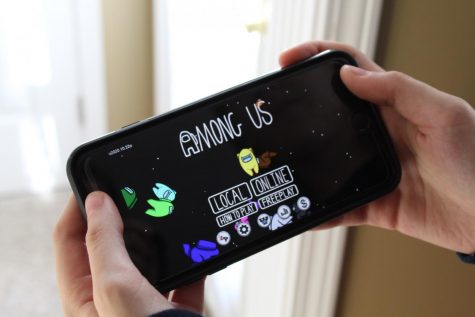Stop the Stigma Around Mental Illness
 No shame, no gain.
No shame, no gain.
Mental illness is a topic that many people in society are ashamed and uncomfortable to talk about but it is time to change that.
Many people struggle with mental illness worldwide. Unfortunately, the stigma around mental health has made it difficult to receive proper treatment for one’s ailments. This stigma has impacts on the way mental illness is viewed and treated it as a society.
Mental health is defined as a state of well-being in which every individual realizes his or her own potential, can cope with the normal stresses of life, can work productively and fruitfully and is able to make a contribution to her or his community according to the World Health Organization. An estimated 1 in 5 adults in the United States have experienced a mental health issue in a given year. That is over 45 million people which is more than population of the state of Florida and New York combined. Common mental health issues include anxiety, depression and bipolar disorder. Around 20 percent of adolescents worldwide have struggled with mental illness.
Many people who have mental illnesses often struggle being open and able to talk about their issues. Society often takes mental health aside and brushes it off as if it is nothing to worry about. One major problem with the stigma around mental health is that many people are not taken seriously when they tell people about their problems. They are told that it’s nothing and that they should get over it. However,someone who has not struggled with a disorder may not understand the gravity of a mental health issue. Shows like ‘13 Reasons Why’ and ‘Shameless’ have attempted to bring awareness to this topics and how it affects oneself.
Even if one person is brave enough to speak out about their experiences, there are repercussions that they might face, one of these being societal judgement. An estimated 62 percent of people with mental illnesses have experienced stigmatization which has commonly resulted in friendship loss and social rejection. One of the most common misconceptions regarding mental illnesses and disorders is that people who suffer from these are dangerous and/or unpredictable according to Psychology Today. Schizophrenia and bipolar disorder are examples of mental illnesses that society perceives as dangerous to others.
Another common misconception about mental illness is that they are self-inflicted or made up for attention. The most common examples of illnesses that are seen in this manner are depression and eating disorders. Many people struggle to understand others ailments as they haven’t went through it themselves. Mental health is not something that should be brushed off. It is just as important as physical health and should receive the same treatment as such.
Mental illnesses are generally hard to talk about in society. This makes it difficult for one to reach out for help. According to Mental Health America, an estimated 56 percent of adults with mental illnesses did not receive proper treatment for their issues. Even in Vermont, the state with the best access to mental health professionals has a whopping 43 percent of adults that still did not receive proper treatment. Places with the least access to proper treatment like Alabama, Arkansas and Mississippi have the highest incarceration related among the mentally ill. There are over 57,000 people with mental health conditions in prison and jail in those states alone. That’s enough to completely fill Madison Square Garden.
The amount of mental health issues in the United States is on the rise. Youth depression rates have risen from 8.5 percent to 11.1 percent from 2011 to 2014. With the increasing cases of mental illness, it is important that individuals do whatever they can to not stigmatize it. Educating people on mental illness is a great way to help end the stigma around it. If people are more informed about it, they can better understand what it is and how it impacts oneself. It is important to stay open minded and accepting of others. It can make them more comfortable about opening up about their disorder or illness.
If you or someone you know needs help contact the NAMI HelpLine 1-800-950-NAMI (6264).








